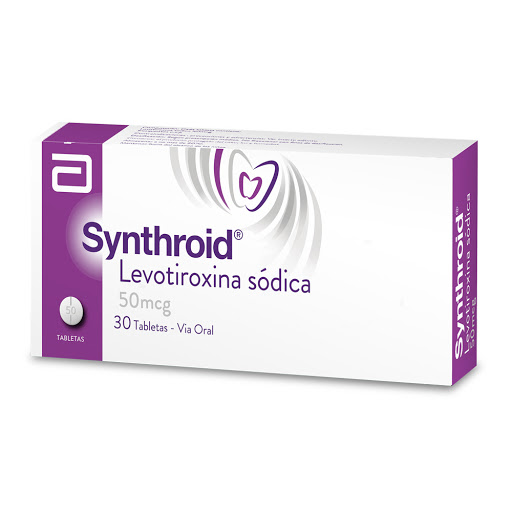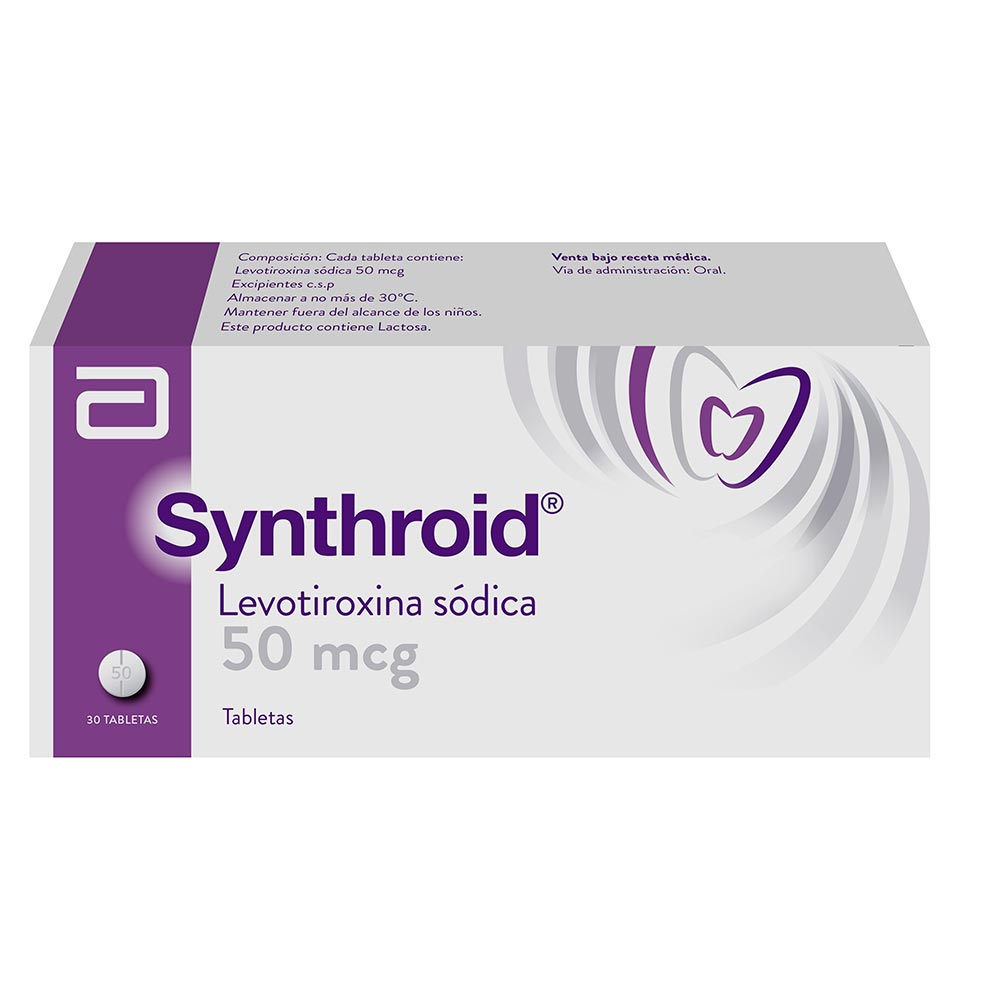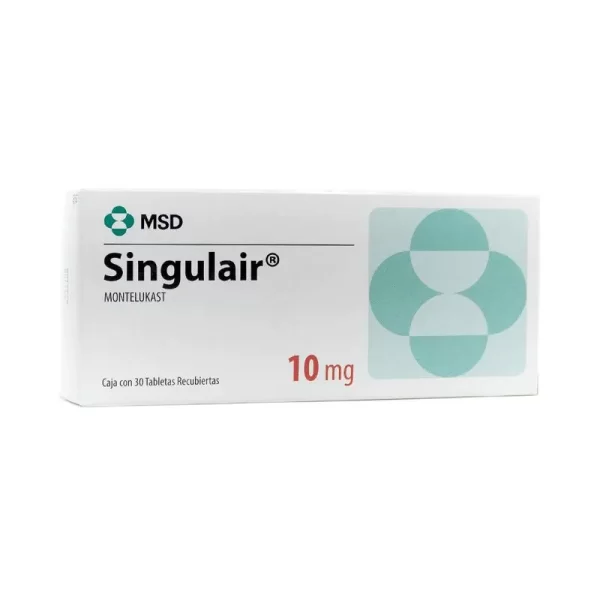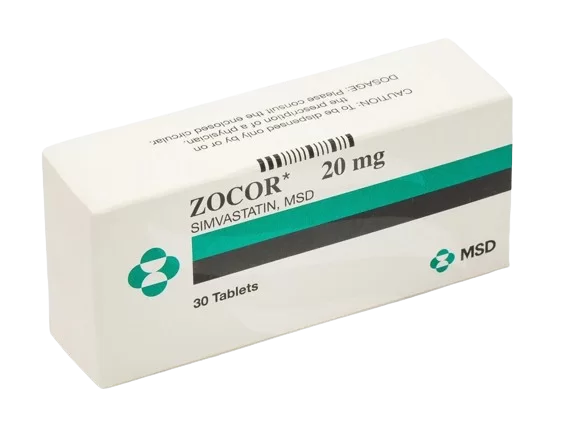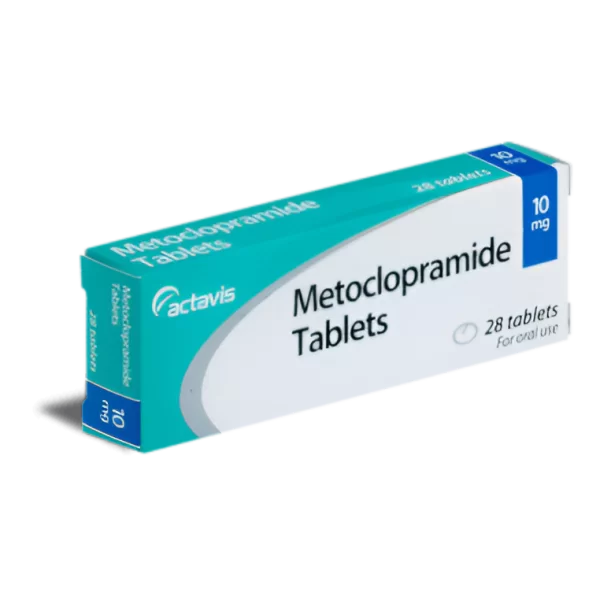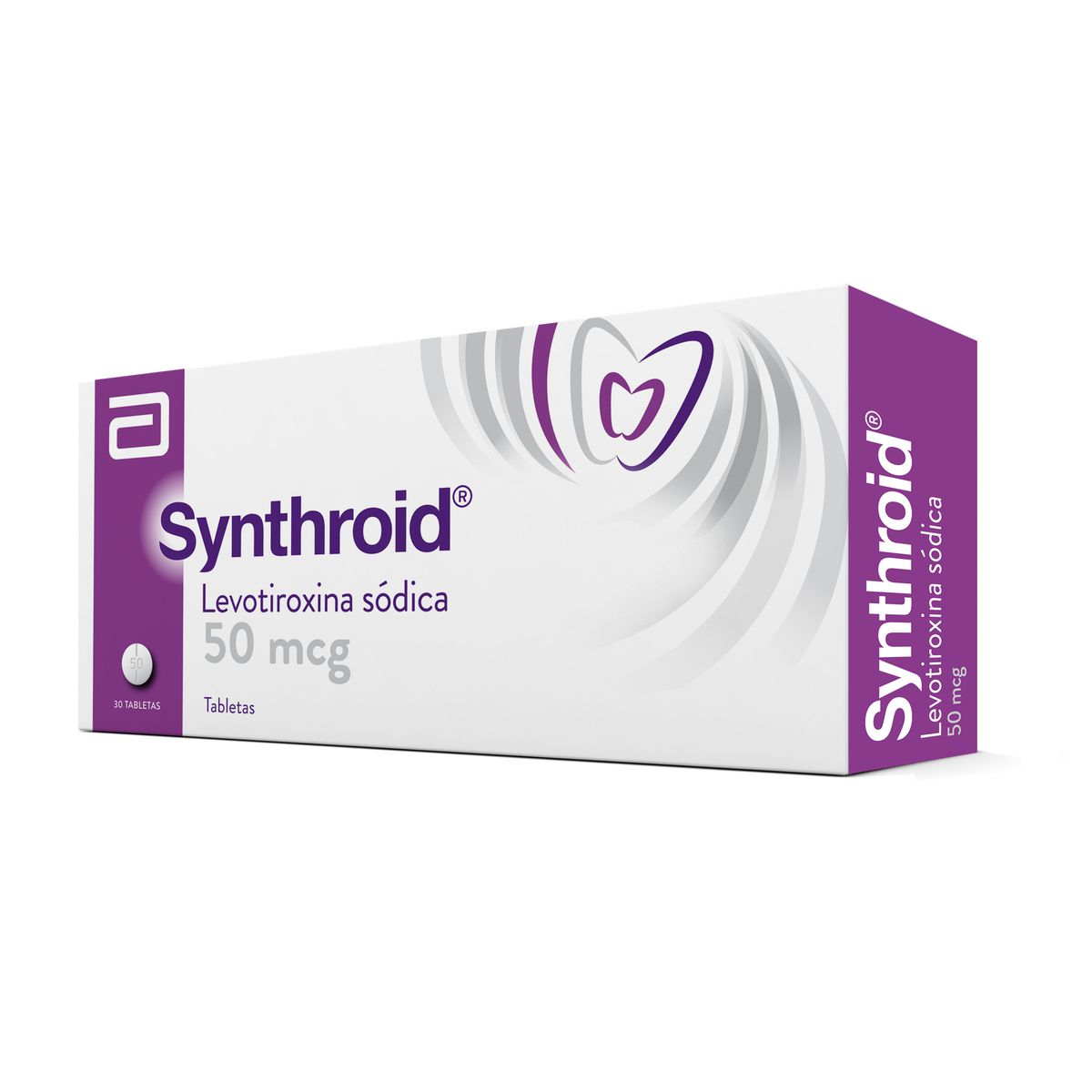
Synthroid
Synthroid - 200mcg
| Product | Per Pill | Savings | Per Pack | Order |
|---|---|---|---|---|
| 60 pills | $0.67 | $40.19 | Buy Now | |
| 90 pills | $0.60 | $6.27 | $60.29 $54.02 | Buy Now |
| 120 pills | $0.57 | $12.54 | $80.39 $67.85 | Buy Now |
| 180 pills | $0.53 | $25.08 | $120.58 $95.50 | Buy Now |
| 270 pills | $0.51 | $43.89 | $180.87 $136.98 | Buy Now |
| 360 pills | $0.50 | $62.70 | $241.16 $178.46 | Buy Now |
Synthroid - 150mcg
| Product | Per Pill | Savings | Per Pack | Order |
|---|---|---|---|---|
| 100 pills | $0.55 | $55.00 | Buy Now | |
| 200 pills | $0.44 | $21.45 | $110.00 $88.55 | Buy Now |
| 300 pills | $0.41 | $42.90 | $165.00 $122.10 | Buy Now |
Synthroid - 125mcg
| Product | Per Pill | Savings | Per Pack | Order |
|---|---|---|---|---|
| 100 pills | $0.49 | $49.48 | Buy Now | |
| 200 pills | $0.40 | $18.55 | $98.95 $80.40 | Buy Now |
| 300 pills | $0.37 | $37.11 | $148.43 $111.32 | Buy Now |
Synthroid - 100mcg
| Product | Per Pill | Savings | Per Pack | Order |
|---|---|---|---|---|
| 100 pills | $0.43 | $43.13 | Buy Now | |
| 200 pills | $0.35 | $15.52 | $86.25 $70.73 | Buy Now |
| 300 pills | $0.33 | $31.05 | $129.38 $98.33 | Buy Now |
Synthroid - 75mcg
| Product | Per Pill | Savings | Per Pack | Order |
|---|---|---|---|---|
| 100 pills | $0.36 | $36.48 | Buy Now | |
| 200 pills | $0.30 | $13.68 | $72.96 $59.28 | Buy Now |
| 300 pills | $0.27 | $27.36 | $109.44 $82.08 | Buy Now |
Synthroid - 50mcg
| Product | Per Pill | Savings | Per Pack | Order |
|---|---|---|---|---|
| 200 pills | $0.29 | $57.75 | Buy Now | |
| 300 pills | $0.22 | $21.66 | $86.63 $64.97 | Buy Now |
Synthroid - 25mcg
Overview of Synthroid
General Introduction
Synthroid, known by its generic name levothyroxine, is a synthetic thyroid hormone used to treat hypothyroidism, a condition where the thyroid gland does not produce enough thyroid hormone. Synthroid works by replacing the deficient hormone, thus normalizing the body's metabolism, energy levels, and growth processes. It is also used to prevent and treat goiter, a condition characterized by an enlarged thyroid gland. Synthroid is available in tablet form and is typically taken once daily.
History of Development and Approval
Levothyroxine was first synthesized in the 1920s, and Synthroid was introduced to the market in the 1950s. It was developed to provide a reliable and consistent source of thyroid hormone replacement. Synthroid received approval from the U.S. Food and Drug Administration (FDA) and has since become the most commonly prescribed medication for hypothyroidism.
Key Benefits
Synthroid offers several key benefits for patients with hypothyroidism:
- Thyroid Hormone Replacement: Effectively replaces deficient thyroid hormone, normalizing metabolism.
- Symptom Relief: Alleviates symptoms such as fatigue, weight gain, and depression.
- Prevention of Goiter: Helps prevent and reduce thyroid gland enlargement.
- Improved Quality of Life: Enhances energy levels, mental clarity, and overall well-being.
Unique Properties
Synthroid is unique due to its ability to provide a consistent and stable level of thyroid hormone replacement. Its long half-life allows for once-daily dosing, which simplifies treatment regimens for patients. Additionally, Synthroid is available in a wide range of dosages, allowing for precise titration to meet individual patient needs.
Comparison with Similar Medications
Compared to other thyroid hormone replacements, Synthroid offers distinct advantages:
- Consistency and Stability: Provides consistent hormone levels, minimizing fluctuations.
- Wide Range of Dosages: Available in multiple strengths, allowing for tailored treatment.
- Long History of Use: Well-established safety and efficacy profile with decades of clinical experience.
Safety and Tolerability
Synthroid is generally well-tolerated when used as directed. Common side effects include palpitations, increased appetite, and weight loss. Serious side effects are rare but may include allergic reactions and cardiac issues. Regular monitoring by a healthcare provider is recommended, especially during dose adjustments, to ensure patient safety and optimal therapeutic outcomes.
Indications for Use
Diseases and Conditions Treated
Synthroid is prescribed for:
- Hypothyroidism: Primary treatment to replace deficient thyroid hormone.
- Goiter: Prevention and treatment of thyroid gland enlargement.
- Thyroid Cancer: Suppression therapy in certain cases of thyroid cancer.
- Pituitary TSH Suppression: To suppress thyroid-stimulating hormone (TSH) levels in certain conditions.
Symptoms Indicating Use
Patients experiencing symptoms of hypothyroidism, such as fatigue, weight gain, cold intolerance, and depression, may benefit from Synthroid. It is particularly effective for individuals who require consistent thyroid hormone replacement to manage their condition.
Dosage and Administration
Recommended Dosage for Adults
The typical starting dose of Synthroid for adults with hypothyroidism is 1.6 micrograms per kilogram of body weight per day. The dose is usually adjusted based on the patient's TSH levels and clinical response. Maintenance doses typically range from 75 to 150 micrograms per day, but individual needs may vary.
Dosage for Children
The dosage for children depends on their age, weight, and the specific condition being treated. Pediatric dosing typically starts at 10 to 15 micrograms per kilogram of body weight per day for infants, and the dose is adjusted as the child grows. Pediatric dosing should always be determined by a healthcare provider to ensure safety and efficacy.
Dosage for Elderly Patients
Elderly patients may require lower initial doses, often starting at 12.5 to 25 micrograms per day, due to the increased risk of cardiac side effects. The dose is gradually increased based on TSH levels and clinical response, with careful monitoring to avoid overtreatment.
Optimal Timing of Administration
Synthroid should be taken on an empty stomach, typically 30 to 60 minutes before breakfast. Consistent timing of administration helps maintain stable blood levels of the medication and enhances its absorption.
Frequency of Administration
Synthroid is administered once daily. Adhering to the prescribed frequency ensures the medication's effectiveness and minimizes the risk of missed doses.
Impact of Food on Efficacy
Food, especially those high in fiber, calcium, or iron, can interfere with the absorption of Synthroid. It is recommended to take the medication on an empty stomach and avoid consuming foods or supplements that may affect absorption for at least four hours after taking the dose.
Pharmacological Action
Mechanism of Action
Levothyroxine, the active ingredient in Synthroid, works by mimicking the natural thyroid hormone thyroxine (T4). It is converted to the active form triiodothyronine (T3) in the body, which regulates various metabolic processes, including energy production, protein synthesis, and growth. By replacing deficient thyroid hormone, Synthroid helps restore normal metabolic function.
Molecular and Cellular Targets
Levothyroxine targets thyroid hormone receptors located in various tissues throughout the body. By binding to these receptors, it activates the transcription of specific genes involved in metabolic regulation, leading to increased protein synthesis, energy production, and overall metabolic activity.
Metabolic Pathways
Levothyroxine is primarily metabolized in the liver to its active form, triiodothyronine (T3), through deiodination. Both T4 and T3 are further metabolized and conjugated in the liver and excreted via the bile and urine. The half-life of levothyroxine is approximately 6-7 days, allowing for once-daily dosing.
Biochemical Changes
By replacing deficient thyroid hormone, Synthroid normalizes biochemical markers such as TSH, T4, and T3 levels. This leads to improvements in metabolic processes, energy levels, and overall physiological function.
Physiological Effects
The physiological effects of Synthroid include increased energy levels, improved mental clarity, normalized metabolism, and relief from symptoms of hypothyroidism. Patients may experience enhanced overall well-being and quality of life with consistent hormone replacement therapy.
Composition
Active Ingredient
The active ingredient in Synthroid is levothyroxine sodium. It is available in various strengths, including 25 mcg, 50 mcg, 75 mcg, 88 mcg, 100 mcg, 112 mcg, 125 mcg, 137 mcg, 150 mcg, 175 mcg, 200 mcg, and 300 mcg tablets.
Inactive Ingredients
Inactive ingredients in Synthroid tablets may include acacia, lactose monohydrate, magnesium stearate, microcrystalline cellulose, and carnauba wax. These ingredients help in the formulation and stability of the medication, ensuring that it is effective and safe for patient use.
Role of Each Component
Levothyroxine sodium acts as the primary therapeutic agent, while inactive ingredients ensure proper formulation, stability, and absorption of the medication. The inactive ingredients also contribute to the tablet's integrity and ease of administration.
Side Effects
Common Side Effects
Common side effects of Synthroid include:
- Palpitations: Irregular or rapid heartbeats.
- Increased Appetite: Enhanced hunger and food intake.
- Weight Loss: Reduction in body weight due to increased metabolism.
- Nervousness: Feeling anxious or jittery.
- Diarrhea: Increased bowel movements and loose stools.
Rare Side Effects
Rare side effects may include:
- Allergic Reactions: Symptoms such as rash, itching, and swelling.
- Bone Loss: Long-term use may contribute to osteoporosis.
- Cardiac Issues: Including arrhythmias and angina.
- Hair Loss: Temporary hair loss, particularly at the start of treatment.
Serious Side Effects
Serious side effects requiring immediate medical attention include:
- Severe Allergic Reactions: Symptoms such as difficulty breathing, swelling of the face, lips, or tongue.
- Severe Cardiac Issues: Such as chest pain, severe palpitations, or heart attack.
- Adrenal Insufficiency: Symptoms such as severe fatigue, weakness, and low blood pressure.
Frequency and Severity
Most side effects are mild and transient, occurring primarily during the initial phase of treatment or with dose adjustments. Serious side effects are rare but warrant close monitoring by a healthcare provider. Regular follow-up appointments can help manage and mitigate these risks.
Prevention of Side Effects
General Precautions
To minimize side effects, patients should follow the prescribed dosage and avoid taking more than the recommended dose. It is important to inform the healthcare provider of any existing medical conditions and medications being taken, particularly those that may interact with Synthroid.
Recommendations for Better Tolerability
Using Synthroid as directed and maintaining regular follow-up appointments with a healthcare provider can improve tolerability. Patients should be educated on the importance of adhering to the prescribed treatment regimen and monitoring their response to the medication. Staying hydrated and maintaining a balanced diet can also help reduce gastrointestinal side effects.
Contraindications
Conditions and Diseases
Synthroid is contraindicated in patients with:
- Known Hypersensitivity: To levothyroxine or any of its components.
- Untreated Thyrotoxicosis: Overactive thyroid condition.
- Acute Myocardial Infarction: Recent or severe heart attack.
- Adrenal Insufficiency: Uncorrected adrenal gland issues.
Explanation of Contraindications
Levothyroxine may exacerbate certain conditions, such as untreated thyrotoxicosis or adrenal insufficiency, due to its metabolic effects. Hypersensitivity reactions can cause severe allergic responses, making it crucial to assess a patient's medical history before prescribing Synthroid.
Warnings and Precautions
Potential Risks
Patients should be monitored for signs of cardiac issues, osteoporosis, and severe allergic reactions, particularly during the initial phase of treatment and during dose adjustments. Regular blood tests may be required to monitor TSH levels, especially in patients with pre-existing cardiac conditions.
Safety Measures
Regular monitoring by a healthcare provider, starting with a low dose, and adjusting as needed can help mitigate risks. Patients should be instructed to report any symptoms of severe cardiac issues, allergic reactions, or signs of adrenal insufficiency immediately.
Missed Dose
Immediate Actions
If a dose is missed, take it as soon as remembered unless it is almost time for the next dose. Do not double the dose to catch up. Continue with the regular dosing schedule to maintain consistent blood levels of the medication.
Preventive Strategies
Using reminders and keeping a consistent schedule can help prevent missed doses. Patients can set alarms, use medication reminder apps, or keep a medication diary to track their doses, ensuring adherence to the treatment regimen.
Drug Interactions
Interacting Medications
Synthroid may interact with various medications, including:
- Antacids: Such as calcium carbonate, which can reduce the absorption of levothyroxine.
- Cholestyramine: Reduces the absorption of levothyroxine.
- Warfarin: Increases the risk of bleeding.
- Antidepressants: Such as sertraline, which can affect thyroid hormone levels.
- Diabetes Medications: May require dose adjustments due to changes in blood sugar control.
Effects of Interactions
These interactions can affect the metabolism and efficacy of Synthroid or the concomitant medications. For instance, combining Synthroid with antacids can reduce its absorption and effectiveness. Monitoring for side effects and adjusting dosages may be necessary to manage these interactions.
Avoiding Interactions
Inform the healthcare provider of all medications being taken to avoid potential interactions. Patients should not start, stop, or change the dosage of any medicines without their healthcare provider’s approval. Regular reviews of medication regimens can help identify and manage potential interactions.
Overdose
Symptoms of Overdose
Symptoms of overdose may include severe headache, palpitations, muscle weakness, and irregular heartbeat. Seek emergency medical help if an overdose is suspected.
Immediate Actions
Seek emergency medical help if an overdose is suspected. Supportive measures and symptomatic treatment are recommended. Activated charcoal may be administered if the overdose is recent, and intravenous fluids may be given to maintain hydration and support cardiovascular function.
Pharmacokinetics
Absorption
Levothyroxine is well-absorbed from the gastrointestinal tract, with peak plasma concentrations reached within 2 to 3 hours after oral administration. The bioavailability of levothyroxine is approximately 70-80%.
Distribution
Levothyroxine is widely distributed throughout the body and is extensively bound to plasma proteins. It crosses the blood-brain barrier and is also distributed to tissues such as the liver and kidneys.
Metabolism
Levothyroxine is metabolized in the liver to its active form, triiodothyronine (T3), through deiodination. Both T4 and T3 are further metabolized and conjugated in the liver and excreted via the bile and urine.
Elimination
The half-life of levothyroxine is approximately 6-7 days, allowing for prolonged effects. It is excreted primarily in the urine as inactive metabolites.
Dosage Forms
Available Forms and Dosages
Synthroid is available in tablet form, typically in strengths ranging from 25 mcg to 300 mcg. These various forms and dosages allow for flexible and tailored treatment approaches based on patient needs and tolerability.
Benefits of Different Forms
The availability of multiple strengths and formulations of Synthroid makes it suitable for various patient preferences and clinical situations. Different formulations allow for precise dosing adjustments based on therapeutic response and individual patient needs.
Pregnancy and Breastfeeding
Safety During Pregnancy
Synthroid should be used during pregnancy to maintain normal thyroid hormone levels, as untreated hypothyroidism can lead to complications for both mother and baby. Dosage adjustments may be necessary during pregnancy, and regular monitoring of thyroid function is essential. Pregnant women should discuss the potential risks and benefits with their healthcare provider.
Safety During Breastfeeding
Levothyroxine is excreted in human milk in small amounts, but it is generally considered safe for use during breastfeeding. Breastfeeding mothers should consult their healthcare provider to weigh the potential risks and benefits and ensure appropriate monitoring of thyroid function.
Storage Conditions
General Recommendations
Store Synthroid at room temperature between 20°C to 25°C (68°F to 77°F). Keep the medication in its original container, tightly closed, and out of reach of children and pets.
Specific Storage Instructions
Synthroid tablets should be stored in a cool, dry place away from direct sunlight and moisture. Store according to the manufacturer's instructions to protect the medication from light and moisture.
Expiry and Stability
Check the expiration date on the package and do not use Synthroid past the expiration date. Proper storage ensures the medication remains effective and safe to use. Dispose of expired or unused medication according to local regulations to prevent accidental exposure or misuse.
Clinical Trials and Efficacy
Overview of Clinical Studies
Synthroid has undergone extensive clinical trials to evaluate its safety and efficacy in treating hypothyroidism and other thyroid-related conditions. These studies included randomized, double-blind, placebo-controlled trials involving thousands of patients worldwide.
Results and Findings
Clinical trials have shown that Synthroid effectively normalizes thyroid hormone levels, alleviates symptoms of hypothyroidism, and improves overall quality of life. Patients treated with Synthroid demonstrated significant improvements in TSH, T4, and T3 levels compared to those receiving a placebo.
Comparative Studies
Studies comparing Synthroid with other thyroid hormone replacements have shown that Synthroid provides effective hormone replacement with a favorable safety profile. Its consistency, stability, and wide range of dosages make it a preferred choice for many healthcare providers.
Conclusion
Summary of Key Points
Synthroid is an effective thyroid hormone replacement therapy for the treatment of hypothyroidism and other thyroid-related conditions. Its ability to normalize thyroid hormone levels provides significant therapeutic benefits for patients with these conditions. The medication is generally well-tolerated, with a well-documented safety profile.
Recommendations
For optimal results, patients should follow their healthcare provider's instructions regarding dosage and administration. Regular monitoring and follow-up appointments are essential to ensure the medication's effectiveness and manage any side effects. Patients should maintain a healthy lifestyle, including proper diet and exercise, to support overall health while on Synthroid therapy.
Final Thoughts
Synthroid significantly improves the quality of life for patients suffering from hypothyroidism and related conditions by effectively managing symptoms and normalizing thyroid hormone levels. With its proven efficacy and safety, Synthroid remains a trusted choice for healthcare providers and patients in the management of these conditions.
